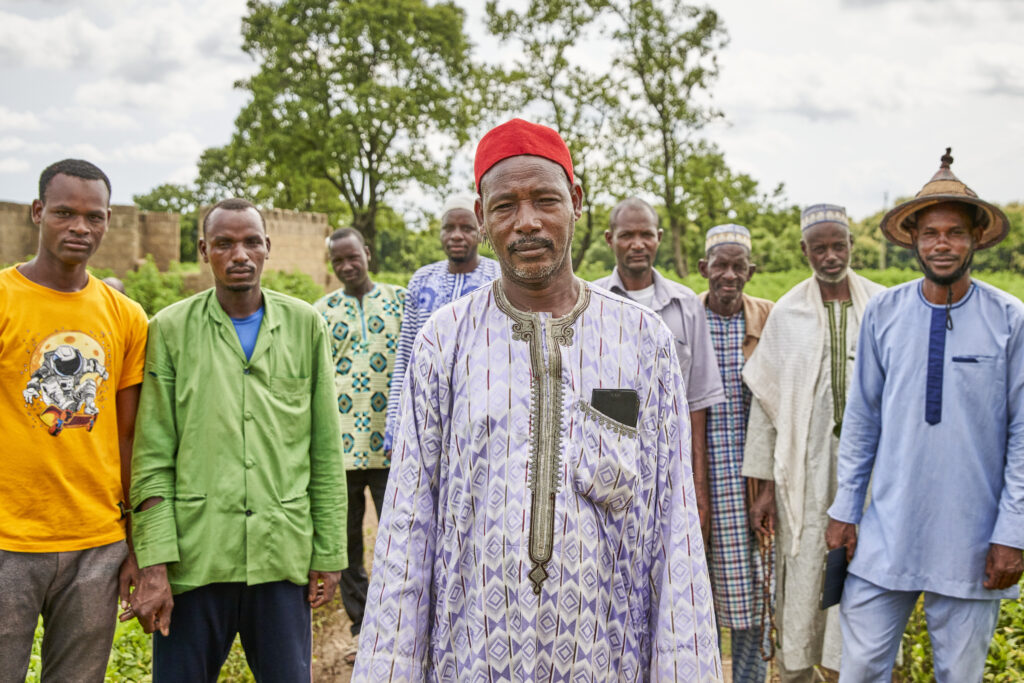Advocacy and mediation foster Fulbe inclusion in Ghana’s Upper West Region
By Pariesa Brody
“Fulbe is our name. Fulani is not,” the Fulbe Chief for the Tumu Traditional Area said. “It is a name given to disrespect and stigmatize us. When you are called ‘Fulani,’ it means you are worthless.”
In Ghana’s Upper West region, the usage of the term “Fulani,” coupled with the marginalization and exclusion of the Fulbe from decision-making and community engagements, has amplified conflict and destabilizing dynamics.
In a region already susceptible to violent extremism and insurgency from the Sahel, residents highlight tensions primarily revolving around disputes over land and water access. Violent extremists exploit these conflicts to recruit followers among the Fulbe population.

To better understand the complex relationship among Fulbe and non-Fulbe ethnic groups in Ghana’s Upper West Region, USAID/OTI’s Littorals Regional Initiative, in collaboration with local NGO SAVE-Ghana, conducted a survey from June to August 2021 to chart relationships between the region’s ethnic groups. The survey shed light on the strained relations between Fulbe and non-Fulbe communities and proposed potential solutions to address the situation.
Following this survey, Littoral Regional Initiative and SAVE-Ghana organized dialogues with District Assembly members, traditional leaders, and community stakeholders to share the survey’s insights.
Fast forward two years, significant strides have been made. These dialogues have resulted in concrete commitments and landmark initiatives across the region, fostering improved relationships between the Fulbe, local authorities, and other ethnic groups. Case in point: nearly 80 percent of districts, including Sissala East and Jirapa Municipality, now use the term “Fulbe” instead of “Fulani.”
Community councils, for the first time, have also welcomed Fulbe traditional leaders to voice their concerns, leading to tangible improvements in their quality of life and community standing. In Tumu, cattle rate taxes — previously double for Fulbe people compared with other ethnic groups — were reduced, not only easing financial burdens but also increasing tax compliance and district revenue.
“I advocated for reducing cattle rate taxes for the Fulbe, and I was heard,” said a Fulbe traditional leader from Tumu. This reduction increased the number of herders who pay taxes, thereby increasing district revenue.
“The Fulbe now feel part of the community and are more willing to pay taxes. There is also no need to involve the security service to force them to pay,” said the Tumu municipal development planning officer.
Fulbe participation in local government has also increased. The district coordinating director in Tumu added that the District Assembly appointed, for the first time, a Fulbe desk liaison officer. The addition of the position allowed local administrators to have a better idea of the Fulbe population size, which, combined with research findings, has led the district coordinating director to take measures to provide potable drinking water and other social amenities lacking in many Fulbe communities.
Eight out of 11 municipal districts in the Upper West region have embraced local roadmaps for Fulbe inclusion, helping local ethnic partnerships flourish. Community stakeholders hold periodic community meetings to continue discussions on social cohesion and share crucial information to mitigate security issues.
“Integration and inclusion of Fulbe in decision-making and governance can promote trust and peaceful coexistence,” said the Fulbe chief of Jirapa.
Advocacy efforts led to the removal of a contentious immigration post and established mediation committees that resolved over 75 cases between Fulbe herders and non-Fulbe farmers as of July 2023, reducing conflicts and crop destruction significantly.
A local radio station, Sissala FM, also launched educational programs on conflict resolution, prevention of violent extremism (PVE), and ethnic culture. The initiative received praise from both Fulbe and non-Fulbe communities for dispelling stereotypes and promoting understanding. Listeners lauded its role in reducing conflicts between farmers and herders.
During a call-in segment after the program, a non-Fulbe listener from the Naabubelle community said, “This program is very educative and will help reduce conflicts between farmers and herders over crop destruction.” A Fulbe listener from the Chinchang community also called in to say, “Now everyone knows that we, the Fulbe, have a voice, and our conflicts are best resolved through dialogue.”
